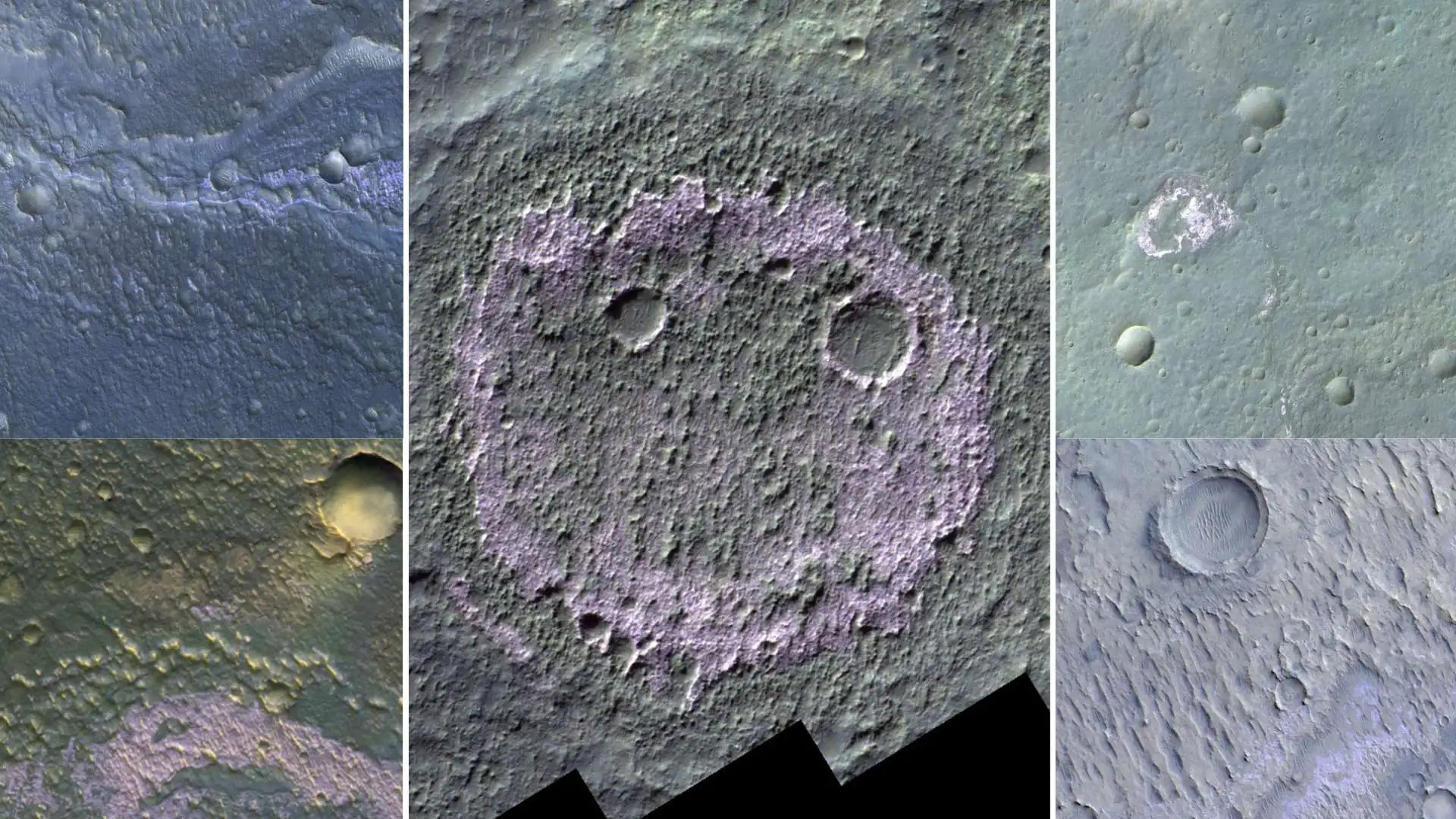The European Space Agency’s ExoMars Trace Gas Orbiter has unveiled a striking image of a ‘smiley face’-shaped salt deposit on Mars, capturing the imagination of space enthusiasts worldwide. Scientists suggest that this unusual feature could be hiding traces of the last remnants of life on the Red Planet.
The salt deposit, resembling an emoticon, is more than just a visual curiosity. It may conceal evidence of hardy microbes that could have thrived when Mars was once home to extensive lakes and rivers. These bodies of water vanished following a global freeze billions of years ago, leaving behind the arid Martian landscape we see today.
View this post on Instagram
Advertisement · Scroll to continue
The ExoMars Trace Gas Orbiter, tasked with detecting signs of life and analyzing the Martian atmosphere, has provided crucial data with its recent capture of the chloride salt deposits. These deposits, remnants of ancient water bodies, offer valuable insights into Mars’ past climate and its potential to support life.
ESA’s social media post highlights the significance of this discovery, noting that Mars, once a planet of flowing rivers and lakes, now reveals its ancient secrets through these salt formations. “Why so serious? Once a world of rivers, lakes, and possibly oceans, Mars now reveals its secrets through chloride salt deposits found by our ExoMars Trace Gas Orbiter,” the post reads. “These deposits, remnants of ancient water bodies, could indicate habitable zones from billions of years ago. The discovery of nearly a thousand potential sites offers new insights into Mars’ climate and potential for past life.”
The discovery of these salt deposits not only intrigues scientists but also enhances our understanding of Mars’ geological history and its ability to harbor life.
ALSO READ | SpaceX To Launch First Uncrewed Starships To Mars In Two Years, Elon Musk Announces | NewsX























